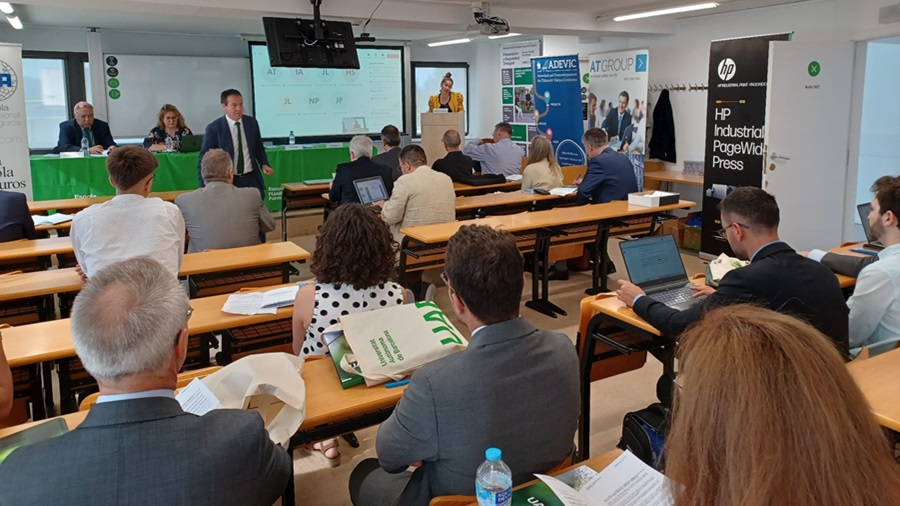Specialists discuss the "already present" issue of autonomous driving in a UAB congress
On 6 and 7 June, the UAB School of Prevention and Integral Safety and Security (Escola de Prevenció i Seguretat Integral, EPSI) organises the International Congress on Autonomous Driving and Legal Safety of Transport as part of the same project funded by the Spanish Ministry for Science, Innovation and Universities, and which includes Professor Eliseo Sierra as principal investigator. Speakers will focus on the legal, social and ethical aspects of an issue which, according to Montserrat Iglesias, director of the Prevention and Integral Safety and Security at the FUAB Training School, is something "already present" among us.

According to Iglesias, who spoke at the opening of the congress, the fact that vehicles can drive autonomously, which until recently was unimaginable, has given rise to the “illusion of reducing traffic accidents”, among other hypotheses, but at the same time raises doubts and challenges in aspects such as, precisely, safety. “Should human intelligence lag behind artificial intelligence?”, she reflected. The issue of autonomous driving also has legal, ethical and even urban planning dimensions, as explained the director of EPSI, who announced that, throughout the congress, experts will discuss a multitude of research and experiences related to this new reality.
The first panel dealt with ethics and fundamental rights in the face of autonomous driving, a topic directly related to the development of artificial intelligence and its impact on privacy and data protection. In this regard, lecturer in constitutional law at the UAB José Carlos Remotti stressed that autonomous cars will be connected to the telecommunications network, road infrastructure and other vehicles, and a large amount of information on travel, contact agenda and biometric data will be in circulation. Remotti also said that the autonomous car will be “a hub for multiple activities” and the fact of transporting people will be only one of its functions, making a comparison with the evolution of mobile telephony. In the same first panel of the congress, Lela Janashvili, lecturer at the University of Tbilisi, spoke on the regulation of data protection and road traffic in Georgia, and Jorge Ortega, lecturer in commercial law at the UAB, discussed the need for an approved code of ethics.
The congress will continue with other panels on administrative planning and controls of autonomous cars, criminal and civil liability arising from the use of autonomous cars, the insurance regime for these types of cars and the risk of cyber attacks. On the morning of 7 June, the last two panels of the congress will be held on unmanned aircraft and urban air mobility and on regulation, safety and insurance related to autonomous ships.
The UAB, with Sustainable Development Goals
Industry, innovation and infrastructure
Sustainable cities and communities